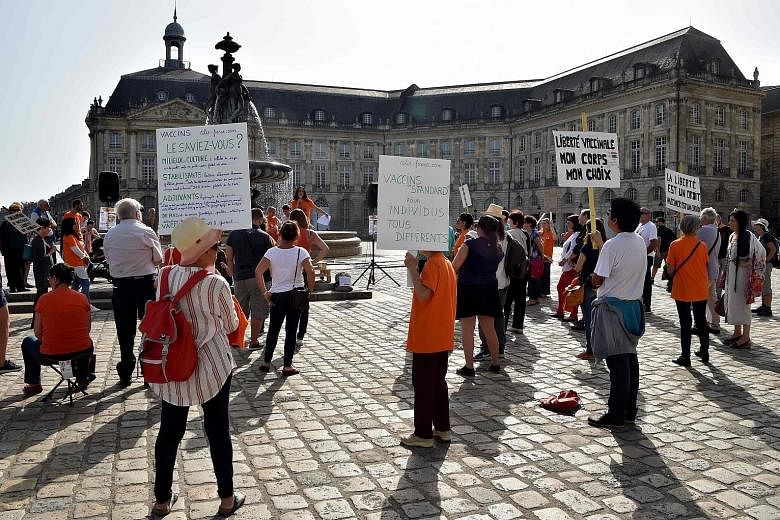The richer countries are, the less their citizens believe that vaccines are safe. In the United States and Canada, only 72 per cent believe vaccines are safe.
In the northern European arc from Ireland and Britain through the Nordic countries, the figure is about 73 per cent.
Already a subscriber? Log in
Read the full story and more at $9.90/month
Get exclusive reports and insights with more than 500 subscriber-only articles every month
ST One Digital
$9.90/month
No contract
ST app access on 1 mobile device
Unlock these benefits
All subscriber-only content on ST app and straitstimes.com
Easy access any time via ST app on 1 mobile device
E-paper with 2-week archive so you won't miss out on content that matters to you

